
Challenges in Sustainability
Scope & Guideline
Exploring Interdisciplinary Approaches to Sustainability Challenges
Introduction
Aims and Scopes
- Sustainability Assessment and Evaluation:
The journal publishes research that evaluates sustainability practices and policies, utilizing various assessment tools and frameworks to measure effectiveness and impact. - Environmental Impact Studies:
Research on the environmental consequences of various activities, particularly in relation to pollution, resource management, and ecological health, is a core focus area. - Sustainable Development Goals (SDGs) Analysis:
The journal explores the progress and challenges associated with achieving the SDGs, particularly through comparative analyses across different income groups and regions. - Economic and Social Dimensions of Sustainability:
It emphasizes the interplay between economic factors and social equity in sustainability, addressing how economic cycles influence environmental outcomes. - Innovative Policy Frameworks:
Research that proposes and evaluates innovative policy models aimed at enhancing sustainability, such as low-carbon policies and community-led initiatives. - Interdisciplinary Approaches to Sustainability:
The journal encourages interdisciplinary research that integrates insights from various fields, including social sciences, economics, and environmental studies, to address complex sustainability issues.
Trending and Emerging
- Carbon Capture and Climate Mitigation Strategies:
There is an increasing focus on innovative technologies and strategies, such as carbon capture and storage (CCS), as critical components of climate change mitigation efforts. - Blue Economy and Natural Capital Preservation:
Research exploring the blue economy's role in sustainability highlights the importance of marine resources and ecosystems in supporting sustainable development. - Social Influences on Sustainability Practices:
Emerging studies examine the impact of social dynamics, including emotional perceptions and cultural factors, on green consumption and sustainable behaviors. - Integrated Management Systems for Circular Economy:
The trend towards integrated management systems that support circular economy principles is gaining traction, emphasizing holistic approaches to sustainability. - Stakeholder Engagement and Relational Interventions:
Research focusing on stakeholder identification and engagement strategies is emerging, reflecting the importance of collaborative efforts in achieving sustainability goals.
Declining or Waning
- Traditional Environmental Management Practices:
Research centered on conventional environmental management techniques appears to be decreasing, as newer, more integrated approaches gain traction. - Single-Factor Analyses:
Studies that focus narrowly on individual factors affecting sustainability without considering broader systemic interactions are becoming less common. - Static Models of Sustainability:
There is a noticeable decline in the use of static models that do not account for dynamic changes and interactions within sustainability systems. - Localized Case Studies:
While localized studies remain relevant, there is a shift towards more global or comparative analyses that can offer broader insights across different contexts. - Resource Extraction Focus:
Research primarily focused on resource extraction and its impacts is waning, with a growing emphasis on sustainable alternatives and circular economy approaches.
Similar Journals
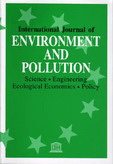
INTERNATIONAL JOURNAL OF ENVIRONMENT AND POLLUTION
Empowering Researchers to Tackle Global Environmental ConcernsInternational Journal of Environment and Pollution is a pivotal publication in the field of environmental science, dedicated to advancing knowledge concerning pollution and its multifaceted impacts on ecosystems and human health. Published by InderScience Enterprises Ltd, this journal, which has been in circulation since 1991, serves as a vital platform for researchers, professionals, and students interested in the management, monitoring, policy, and law associated with environmental issues. With an ISSN of 0957-4352 and E-ISSN 1741-5101, it offers a critical perspective on pollution challenges, emphasizing Waste Management and Disposal. Although placed in the Q4 quartile of its categories, it remains an important resource for understanding the complexities of environmental impact, contributing to policy formulation and ecological research. The journal does not offer Open Access, but it can be accessed through various academic libraries and institutions that value comprehensive studies in environmental management. Engage with the latest findings and discussions that address pressing environmental concerns today!
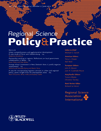
Regional Science Policy and Practice
Fostering collaboration for effective regional development strategies.Regional Science Policy and Practice is a premier academic journal published by WILEY, focusing on the interconnections between regional science, policy development, and practical implementation in diverse contexts. With an ISSN of 1757-7802, this journal has established its reputation through rigorous research, sitting in the prestigious Q2 quartile across several categories, including Development, Geography, Planning and Development, as well as Management, Monitoring, Policy, and Law. Its commitment to advancing knowledge in regional development is reflected in its notable Scopus rankings, where it holds the 90th rank in Development and maintains a solid presence in Geography and Environmental Science. Although not an open-access journal, Regional Science Policy and Practice serves as a vital resource for researchers, professionals, and students keen on understanding and shaping the dynamics of regional policies and practices from 2008 to 2024 and beyond. Based in the United States, this journal encourages submissions that illuminate theoretical frameworks, empirical studies, and policy reviews, aiming to enhance the understanding and practice of regional science on a global scale.

Discover Sustainability
Illuminating the science of sustainability.Discover Sustainability is a prominent academic journal published by Springer Nature, dedicated to advancing knowledge in the fields of sustainability, energy, environmental science, and geography. Established in 2020, this Open Access journal aims to provide a platform for high-quality research that addresses pressing global challenges related to sustainable development. With an impressive Q2 ranking in various categories including Energy (miscellaneous), Environmental Science (miscellaneous), Geography, Planning and Development, and a respectable position in Renewable Energy, Sustainability and the Environment, it serves as a vital resource for researchers, professionals, and students alike. As the importance of sustainability initiatives continues to grow, Discover Sustainability offers a valuable repository of innovative ideas and empirical studies that contribute to the advancement of sustainable practices worldwide. Explore this journal to engage with groundbreaking research that shapes the future of our planet.
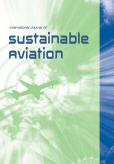
International Journal of Sustainable Aviation
Bridging theory and practice in sustainable aviation.International Journal of Sustainable Aviation is a pioneering publication aimed at advancing the fields of aerospace and environmental engineering with a specific focus on sustainability practices in aviation. Published by INDERSCIENCE ENTERPRISES LTD, this journal addresses the critical challenges and innovations in sustainable aviation, emphasizing research that contributes to resource efficiency, environmental preservation, and technological advancements. Although ranked in the lower percentiles of various engineering categories, it serves as a crucial forum for researchers, professionals, and students interested in new methodologies and infrastructures that promote ecological responsibility within the aviation sector. With an ISSN of 2050-0467 and an e-ISSN of 2050-0475, the journal invites contributions that explore sustainable strategies and innovative practices in the aviation industry. Operating from its base in Geneva, Switzerland, the journal aims to bridge the gap between theoretical research and practical applications in the quest for a greener aviation future.

REUNIR-Revista de Administracao Contabilidade e Sustentabilidade
Championing high-quality research for a sustainable tomorrow.REUNIR-Revista de Administração Contabilidade e Sustentabilidade is a prominent academic journal published by the Universidade Federal de Campina Grande, under the auspices of the Centro Ciências Jurídicas e Sociais. With a dedicated focus on the intersection of administration, accounting, and sustainability, this journal serves as a vital platform for researchers, professionals, and students seeking to explore innovative practices and theories within these fields. Although currently not classified as Open Access, it maintains a commitment to disseminating high-quality research, thereby fostering scholarly dialogue and practical application. The journal adheres to rigorous academic standards and aims to contribute significantly to understanding sustainable management practices in various organizational contexts. As it evolves, REUNIR promises to be an essential resource for those dedicated to advancing knowledge and implementing effective solutions in administration and sustainability.
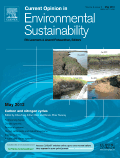
Current Opinion in Environmental Sustainability
Advancing Knowledge for a Greener TomorrowCurrent Opinion in Environmental Sustainability, published by Elsevier Science Ltd, is a leading academic journal that specializes in exploring innovative strategies and emerging trends in environmental sustainability. With an impressive impact factor that reflects its esteemed position within the field, this journal is classified as Q1 in both the Environmental Science and Social Sciences categories for 2023, indicating its high-quality and influential contributions. The journal has been at the forefront of sustainability discussions since its inception in 2009 and continues to provide a platform for multidisciplinary research and critical analysis. As a key resource for researchers, professionals, and students alike, Current Opinion in Environmental Sustainability ensures open access to valuable insights while fostering collaboration and knowledge sharing across various domains. This journal not only serves to inform and inspire but also aims to address the pressing challenges of sustainability in our evolving world, making it an essential read for anyone engaged in environmental studies.

Resources Environment and Sustainability
Unlocking Knowledge for Sustainable Practices and PoliciesResources Environment and Sustainability is a premier academic journal published by ELSEVIER, dedicated to advancing knowledge in the fields of environmental science, engineering, and sustainability practices. Recognized for its rigorous peer-review and high-quality research, the journal boasts an impressive impact factor and consistently ranks in the first quartile across multiple categories, including Environmental Engineering, Environmental Science, Management, Monitoring, Policy and Law, and Pollution. With its Scopus rankings placing it among the top journals—#7 in Environmental Science and #12 in Environmental Engineering—this journal provides a vital platform for researchers, professionals, and students seeking to contribute to evolving policies, innovative management strategies, and cutting-edge environmental solutions. Hosted in the Netherlands, Resources Environment and Sustainability is committed to fostering interdisciplinary dialogue and disseminating high-impact research that addresses the pressing challenges of our times. This journal embraces open access principles, ensuring that the wealth of knowledge it publishes remains accessible to a global audience.
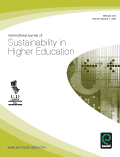
International Journal of Sustainability in Higher Education
Pioneering research for a sustainable educational landscape.International Journal of Sustainability in Higher Education, published by Emerald Group Publishing Ltd, is a leading academic journal dedicated to the exploration of sustainability within higher education settings. Established in 2000, this prestigious journal has garnered a reputation for excellence, reflected in its Q1 ranking in both Education and Human Factors and Ergonomics, and securing a prominent place in the Scopus database—ranked #152 out of 1543 in the Social Sciences Education category. With a focus on innovative research and practices that promote sustainable development in educational institutions, this journal aims to provide a comprehensive platform for academics, practitioners, and policymakers to share insights and advance knowledge in this critical area. While it is not currently an open access publication, the journal's continued contribution to the sustainability discourse makes it an invaluable resource for anyone dedicated to fostering responsible and sustainable higher education practices.
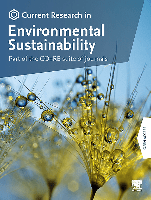
Current Research in Environmental Sustainability
Pioneering Research for a Sustainable FutureCurrent Research in Environmental Sustainability is a pioneering open-access journal published by ELSEVIER that has quickly established itself at the forefront of environmental science since its inception in 2020. With an impressive Q1 ranking in the Miscellaneous category of Environmental Science and a notable Scopus rank of 47/233, this journal serves as a vital platform for researchers, professionals, and students seeking to explore innovative solutions to pressing environmental issues. The journal's scope encompasses a wide array of topics related to sustainability, providing a forum for high-quality research that promotes sustainable development practices globally. As it continues to expand its reach through open access, Current Research in Environmental Sustainability not only enhances the dissemination of scientific knowledge but also ensures that critical environmental findings are readily available to a diverse audience, fostering collaboration and impact in the field.
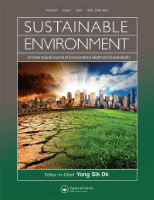
Sustainable Environment
Driving impactful research to tackle environmental challenges.Sustainable Environment, published by Taylor & Francis Ltd, is a pioneering journal dedicated to advancing the field of sustainability studies. Since its inception in 2021, this open-access journal has sought to provide a platform for multidisciplinary research that addresses pressing environmental challenges and sustainable practices. With a commitment to disseminating high-quality research swiftly, Sustainable Environment aims to engage researchers, policymakers, and practitioners across various domains, fostering scholarly dialogue and innovation. The journal covers a broad range of topics, including climate change, resource management, and sustainable development, making it a vital resource for anyone looking to contribute to and understand contemporary environmental issues. With its flexible access options, readers from all backgrounds can benefit from the latest insights and findings in sustainability research, thereby promoting a more sustainable future.